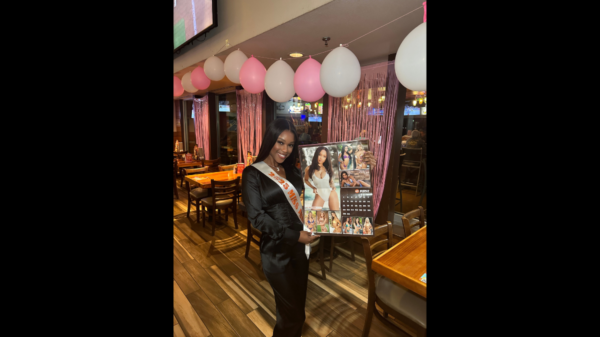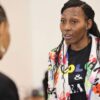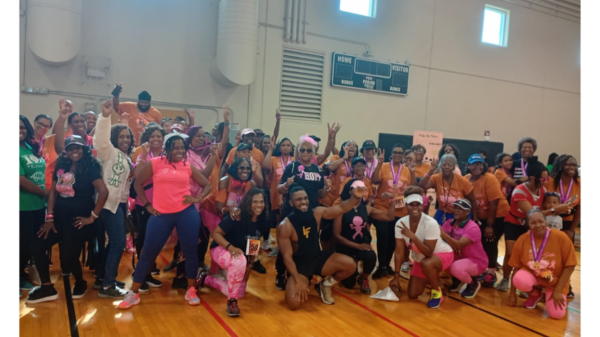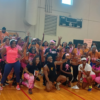
The “Triple” in Triple Negative Breast Cancer (TNBC) refers to Estrogen and Progesterone (hormones) and Her2 (an epidermal growth factor). This means that they are NOT going to respond to hormonal therapy or medicines that target the Her2 Protein.
In the US, TNBC is a rare and aggressive type of breast cancer that makes up only 10% to 20% of the total invasive breast cancers.
Black women of diverse backgrounds are three times more likely than non-black women to have TNBC, regardless of age or weight and this may contribute to the lower survival rates among women of color. The prevalence of TNBC among white Americans is 10% and among African-Americans is 33%.1 The total number of cases of TNBC globally is approximately 170,000.2 The prevalence of TNBC in Ghana, however, is 82% – the highest percentage of breast cancers of this subtype globally.3
My motto has always been to TEST and not Guess when I am treating a patient. We have the liberty now to be very specific in our treatments by using genetics. I started using specialized testing about four years ago that allows me to know the clinical risk for metastases/ angiogenesis, proliferation, and resistance. This information then allows me also to see exactly which therapeutic option would be best specifically for them based on genetics. I look at conventional cytostatics, targeted therapies (Moab and SMW), Class I, II, and II biological/natural substances, and of course sensitivity to radiotherapy/ Hyperthermia.
Here are 5 of the biological and natural substances that I have seen great results with:
- Those with the triple-negative breast cancer phenotype have the lowest average vitamin D levels and the highest percentage of patients who are vitamin D deficient.4 Vitamin D given to a mouse model suppressed multiple proteins that are required for survival of triple-negative/basal-like breast cancer cells.5
- A product that contains medicinal mushrooms (Coriolus versicolor, Ganoderma lucidum, Phellinus linteus), medicinal herbs (Scutellaria barbata, Astragalus membranaceus, Curcuma longa), and purified biologically active nutritional compounds (diindolylmethane and quercetin) was found to prevent breast-to-lung cancer metastases in an orthotopic animal model of triple-negative human breast cancer.6
- Melatonin showed effectiveness in reducing tumor growth and cell proliferation, as well as in the inhibition of angiogenesis in TNBC-induced mouse model.7
- Epigallocatchin-3-gallate (EGCG), from green tea, induces apoptosis and inhibits cell proliferation and migratory behavior of TNBC cells.8
- Curcumin induces apoptosis and inhibits the proliferation of TNBC cells.9
As a Naturopathic Physician, I meet the patient where they are in their process and help to navigate their journey to optimal health. I serve as a bridge between conventional and alternative medicine by educating them on options of treatment including testing for the right conventional AND natural treatments and then mitigating side effects if need be. When choosing a Naturopathic Physician to work with OR direct your patient to: PLEASE make sure that they are licensed and have proper clinical training. There are only 6 schools that give the ND or NMD degree – you can check their credentials here: www.aanmc.org
References
1. Barbara, MacDonald,ND, LAC. What is Triple Negative Breast Cancer. Townsend Letter 2015 April 54-60
2. Sorlie T, Wang Y, Xiao C, et al. Distinct molecular mechanisms underlying clinically relevant subtypes of breast cancer; gene expression analyses across three different platforms. BMC Genomics. 2006;7:127.
3. Stark A, Kleer CG, Martin I, et al. African ancestry and higher prevalence of triple-negative breast cancer: findings from an international study. Cancer 2010;116:4926–4932.
4. Rainville C, Khan Y, Tisman G. Triple negative breast cancer patients presenting with low serum vitamin D levels: a case series. Cases J. 2009 July 21;2:8390.
5. LaPorta E, Welsh J. Modeling vitamin D actions in triple negative/basal-like breast cancer. J Steroid Biochem Mol Biol. 2014 Oct;144.
6. Jiang J, Thyagarajan-Sahu A, Loganathan J, et al. BreastDefendtm prevents breast-to-lung cancer metastases in an orthotopic animal model of triple-negative human breast cancer. Oncol Rep. 2012 Oct;28(4):1139–1145.
7. Jardim-Perassi BV, Arbab AS, Ferreira LC, et al. Effect of melatonin on tumor growth and angiogenesis in xenograft model of breast cancer. PLoS One. 2014 Jan 9;9(1):e85311.
8. Braicu C, Gherman CD, Irimie A, et al. Epigallocatechin-3-Gallate (EGCG) inhibits cell proliferation and migratory behavior of triple negative breast cancer cells. J Nanosci Nanotechnol. 2013 Jan;13(1):632–637.
9. Sun XD, Liu XE, Huang DS. Curcumin induces apoptosis of triple-negative breast cancer cells by inhibition of EDGR expression. Mol Med Rep. 2012 Dec 6(6):1267–1270.
Meet Dr. Samm Pryce
Dr. M. Samm Pryce is a licensed Naturopathic Physician practicing in Ann Arbor, Michigan. She is the author of The 7 Naturopathic Secrets to Transform Your: The path to healing through Natural Medicine. Dr. Samm is a 2005 graduate of Southwest College of Naturopathic Medicine; a member of the American Association of Naturopathic Physicians, the Oncology Association of Naturopathic Physicians, The Endocrinology Association of Naturopathic Physicians, the Society of Behavioral Sleep Medicine, and the Michigan Association of Naturopathic Doctors. She is the CMO of Balanced Integration, PLLC. Dr. Samm’s clinical focus is Chronic illness and cancer, and how to use epigenetics and nutrigenomics to beat it and prevent it.
Contact: www.DrSammND.com









You must be logged in to post a comment Login